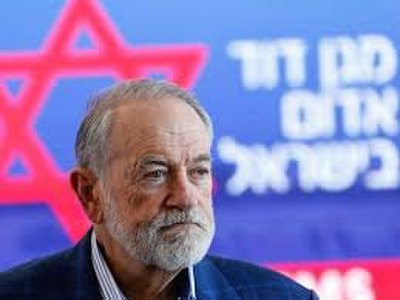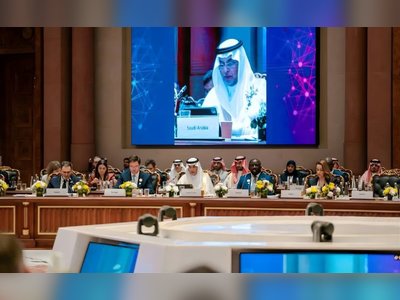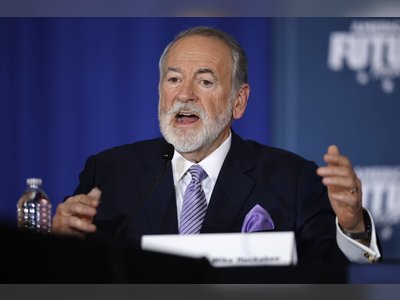
UN Vetoes: Russia Blocks Space Nuclear Arms Race Resolution, Accuses US of Hypocrisy
The UN Security Council met on April 24, 2024, where the US and Japan proposed a resolution calling for a ban on nuclear weapons and other weapons of mass destruction in outer space.
The resolution aimed to uphold the 1967 international treaty that prohibits such weapons in space and included verification compliance.
The vote resulted in 13 members in favor, Russia opposed, and China abstaining.
Russia criticized the resolution as a "dirty spectacle" that singled out certain weapons for ban while ignoring others.
US Ambassador Linda Thomas-Greenfield stated that Russia, under President Vladimir Putin, has no plans to deploy nuclear weapons in space.
The United States and Russia are at odds over a recent UN Security Council resolution regarding weapons in space.
The US has accused Russia of developing a new anti-satellite weapon capable of carrying a nuclear device, although it is not yet operational.
The US and other countries proposed a resolution to reaffirm the existing rules against deploying weapons in space, but Russia vetoed it.
US officials expressed confusion over Russia's objection, as following the rules would seemingly support the resolution.
Russia's UN ambassador dismissed the resolution as politicized and not going far enough in banning all types of weapons in space.
Russia and China proposed a UN Security Council resolution to ban the placement of weapons in outer space, but it was defeated due to insufficient votes.
The US opposed the amendment and was accused by Russia of blocking similar proposals since 2008.
Russia and China argued that all countries, including those with major space capabilities, should prevent the placement of weapons in space.
The US has previously announced plans to place weapons in outer space.
United States Ambassador to the United Nations, Linda Thomas-Greenfield, accused Russia of violating global nuclear weapons treaties, using dangerous nuclear rhetoric, and refusing to engage in arms control discussions.
She expressed disappointment over the UN Security Council's failure to adopt a resolution condemning the testing of a Russian anti-satellite weapon, which could have nuclear ramifications in space.
Russia's President, Vladimir Putin, later denied any intention of deploying nuclear weapons in space, but the US has raised concerns over Russia's development of such capabilities.
Thomas-Greenfield warned of the potential catastrophic consequences of a nuclear explosion in space.
A defeated UN draft resolution could have prevented an arms race in outer space, according to the text.
The resolution aimed to urge all countries to comply with international law and the UN Charter in their space activities.
It also affirmed the obligation of countries that ratified the 1967 Outer Space Treaty not to put weapons of mass destruction in orbit or on celestial bodies.
The treaty, which has been ratified by 114 countries including the US and Russia, prohibits the deployment of nuclear or other mass destruction weapons in space.
Failure to pass this resolution could result in the destruction of thousands of satellites and the disruption of vital communications, scientific, meteorological, agricultural, commercial, and national security services.
The text discusses a draft resolution at the United Nations (UN) emphasizing the need for further measures to prevent an arms race in outer space.
The UN Conference on Disarmament in Geneva is responsible for negotiating such agreements but has made little progress.
The draft resolution urges the conference to adopt a balanced and comprehensive program of work.
The text also mentions that geopolitical tensions and mistrust have increased the risk of nuclear warfare to its highest point in decades, as warned by UN Secretary-General António Guterres during a March council meeting where a US-Japan initiative to prevent an arms race in outer space was launched.
The movie "Oppenheimer" portrays Robert Oppenheimer, the US scientist who led the project to develop the atomic bomb during World War II.
The film reportedly brings the potential devastation of nuclear war to viewers.
The UN chief expressed concern that humanity cannot endure a repeat of the events depicted in the movie.
The vote resulted in 13 members in favor, Russia opposed, and China abstaining.
Russia criticized the resolution as a "dirty spectacle" that singled out certain weapons for ban while ignoring others.
US Ambassador Linda Thomas-Greenfield stated that Russia, under President Vladimir Putin, has no plans to deploy nuclear weapons in space.
The United States and Russia are at odds over a recent UN Security Council resolution regarding weapons in space.
The US has accused Russia of developing a new anti-satellite weapon capable of carrying a nuclear device, although it is not yet operational.
The US and other countries proposed a resolution to reaffirm the existing rules against deploying weapons in space, but Russia vetoed it.
US officials expressed confusion over Russia's objection, as following the rules would seemingly support the resolution.
Russia's UN ambassador dismissed the resolution as politicized and not going far enough in banning all types of weapons in space.
Russia and China proposed a UN Security Council resolution to ban the placement of weapons in outer space, but it was defeated due to insufficient votes.
The US opposed the amendment and was accused by Russia of blocking similar proposals since 2008.
Russia and China argued that all countries, including those with major space capabilities, should prevent the placement of weapons in space.
The US has previously announced plans to place weapons in outer space.
United States Ambassador to the United Nations, Linda Thomas-Greenfield, accused Russia of violating global nuclear weapons treaties, using dangerous nuclear rhetoric, and refusing to engage in arms control discussions.
She expressed disappointment over the UN Security Council's failure to adopt a resolution condemning the testing of a Russian anti-satellite weapon, which could have nuclear ramifications in space.
Russia's President, Vladimir Putin, later denied any intention of deploying nuclear weapons in space, but the US has raised concerns over Russia's development of such capabilities.
Thomas-Greenfield warned of the potential catastrophic consequences of a nuclear explosion in space.
A defeated UN draft resolution could have prevented an arms race in outer space, according to the text.
The resolution aimed to urge all countries to comply with international law and the UN Charter in their space activities.
It also affirmed the obligation of countries that ratified the 1967 Outer Space Treaty not to put weapons of mass destruction in orbit or on celestial bodies.
The treaty, which has been ratified by 114 countries including the US and Russia, prohibits the deployment of nuclear or other mass destruction weapons in space.
Failure to pass this resolution could result in the destruction of thousands of satellites and the disruption of vital communications, scientific, meteorological, agricultural, commercial, and national security services.
The text discusses a draft resolution at the United Nations (UN) emphasizing the need for further measures to prevent an arms race in outer space.
The UN Conference on Disarmament in Geneva is responsible for negotiating such agreements but has made little progress.
The draft resolution urges the conference to adopt a balanced and comprehensive program of work.
The text also mentions that geopolitical tensions and mistrust have increased the risk of nuclear warfare to its highest point in decades, as warned by UN Secretary-General António Guterres during a March council meeting where a US-Japan initiative to prevent an arms race in outer space was launched.
The movie "Oppenheimer" portrays Robert Oppenheimer, the US scientist who led the project to develop the atomic bomb during World War II.
The film reportedly brings the potential devastation of nuclear war to viewers.
The UN chief expressed concern that humanity cannot endure a repeat of the events depicted in the movie.
Translation:
Translated by AI











